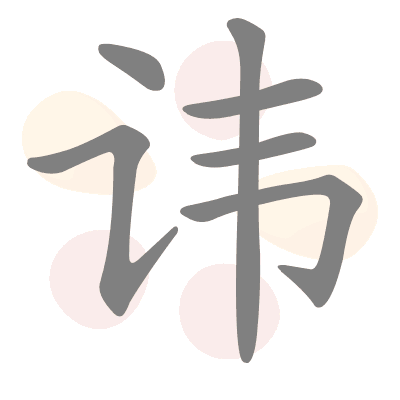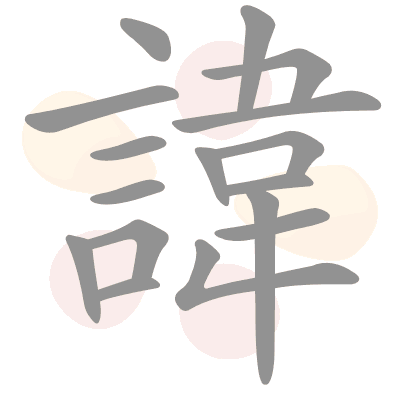讳
諱
char. avoid as a taboo; forbidden work, taboo; (ancient China) name of emperor or high-ranking officials which were regarded as taboo
| 80% | 120% |
Register to get less ads.
Registration is free and once you are registered you use this word in your private vocabulary lists.
Then you can train your own vocabulary either here or using one of our applications for PC, iOS or Android.
Registration is free and once you are registered you use this word in your private vocabulary lists.
Then you can train your own vocabulary either here or using one of our applications for PC, iOS or Android.
Simplified Chinese Traditional Chinese |
Simplified stroke orders are based on the 'Standard of National Commonly-used Mandarin Chinese Characters (现代汉语通用字笔顺规范)', issued by the China National Language and Character Working Committee (国家语言文字工作委员会) on April 7th 1997. Traditional stroke orders are based on information issued by the Taiwan Ministry of Education.
供 供 phr. confess everything, make a full confession of one's crimes |
忌 忌 n./v. taboo; avoid as taboo, abstain from |
讳 諱 phr. conceal one's ailment and refuse to consult the doctor (hide one's troubles and take no remedial measures) |
直 直 phr. speak frank and straightforward, speak bluntly without euphemism |
避 避 v./n. word or phrase to be avoided as taboo, taboo |
无 無 idiom. undeniable, indisputable, beyond (all) question, there is no hiding the fact |
不 不 phr./v. without concealing anything; (euphemistic) to die |
名 名 n. name for the respected people, taboo name (e.g. of emperors) |











